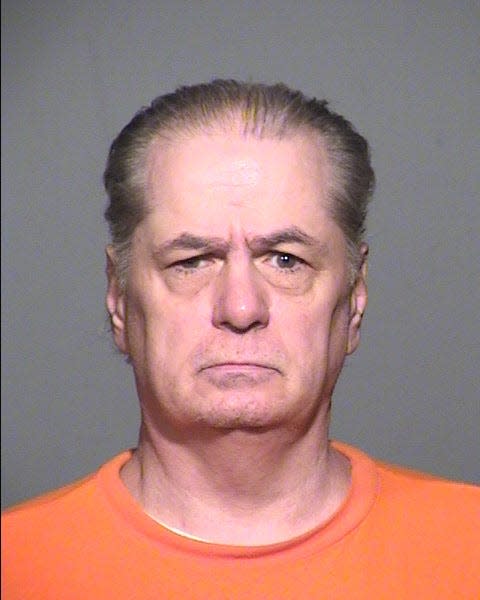Arizona gets the U.S. Supreme Court's OK to execute a possibly innocent man

Reading the legal mumbo jumbo involved in a case that goes all the way to the U.S. Supreme Court is like slogging through wet cement.
So let’s boil this one down to basics.
In an Arizona case called Shinn v. Martinez Ramirez, which involved two different cases and two different inmates, the conservative justices of the Supreme Court issued a decision that will allow Arizona to execute a convicted child killer who actually might be innocent.
I say might because lower courts found that the lawyers for the convicted man, Barry Jones, stunk.
They say his attorneys failed to provide adequate defense for him at the trial level, and then the lawyers assigned to take his post-conviction case also stunk.
Evidence to exonerate doesn't cout?
The argument before the Supreme Court was that Jones was deprived of his Sixth Amendment right to adequate counsel.
But the court didn’t buy it, essentially siding with an anti-terrorism law that prohibits state defendants from introducing new evidence during a federal trial, even if that evidence exonerates them.
So, if the state of Arizona wants to kill him, it can.
Dig deeper: Court saved Jones from death row. He may still be executed
His lawyers say Jones is innocent.
I don’t know if that is true. I also don’t know – and I don’t think anyone else knows for sure – if he is guilty.
Shouldn’t that be the bottom line before we execute a guy?
Experts were never consulted in Barry Jones' case
Jones was convicted of killing his girlfriend’s 4-year-old daughter.
According to reports from the trial, the evidence against him relied heavily on an eyewitness who saw Jones strike the girl. However, there apparently were experts who would have contested that and might have helped to exonerate Jones.
The prosecution’s theory was that Jones hurt the girl while taking care of her. She died 12 hours later. An article in The Intercept, however, described how three experts say that theory is not correct and how other evidence against Jones is either weak or has been debunked.
But experts weren’t interviewed during his appeal process.
And Arizona law only gives a convicted person one shot at that.
So the case was taken federal.
AG Brnovich praised the Supreme Court ruling
Prior to the Supreme Court’s ruling, Jones’ attorney, Robert Loeb, told The Arizona Republic, “If the Supreme Court adopts Arizona’s position, many defendants, who never had a fair trial, would be denied a critical chance to challenge their convictions. The federal courts are not just rubber stamps; the federal courts do not simply pass over constitutional errors when a defendant never had a full and fair trial, as is the case here.”
Actually, that is exactly what the Supreme Court did.
The other defendant in the combined case, Luis Martinez, was convicted of murdering his girlfriend and her daughter. Court records say his state appointed lawyer did not research or provide evidence that proved mental instability and severely low IQ.
That will not matter, either.
Attorney General Mark Brnovich praised the court’s ruling, saying, “I applaud the Supreme Court’s decision because it will help refocus society on achieving justice for victims, instead of on endless delays that allow convicted killers to dodge accountability for their heinous crimes.”
We're not giving defendants a fair shot
No one wants that.
But the whole point of justice is to be … just.
Sylvia Lett, an associate clinical professor of law at the University of Arizona, said earlier, “It’s very illogical. For those of us who believe in fairness, why not just get it right? It’s not giving relief, it’s giving them a fair shot at bringing claims of unfairness up.”
The 9th Circuit court of appeals, as well as another federal court, thought the evidence against Jones was so weak he deserved a new trial, or even to be released.
Jones’ attorney, Robert Loeb, has said previously, “The federal courts found that his state-appointed counsel failed to investigate his defenses and examine the government’s evidence. Had counsel properly performed their duties, they easily would have found evidence showing Barry’s innocence.”
Maybe.
Now we’ll never know.
What is certain, however, is that the state of Arizona can execute a man whom everyone knows may – or may not – be guilty.
Reach Montini at ed.montini@arizonarepublic.com.
This article originally appeared on Arizona Republic: Arizona gets Supreme Court OK to execute a possibly innocent man
